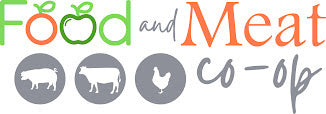When you come across one of our Clearance deals, you probably noticed the different dates. We offer clearance deals for our Community as another way to help you all save money.
Among these dates, the most common ones are "Best Buy" dates and "Expiration" dates. While they may seem similar, understanding the distinction between the two is crucial for making informed decisions about food safety and quality. In this blog post, we'll explore the difference between Best Buy dates and Expiration dates, shedding light on what they really mean.

Best Buy Dates:
Best Buy dates, also known as "Sell By" or "Best Before" dates, are indicators provided by manufacturers to suggest the timeframe during which a product is at its peak quality. These dates are primarily intended for retailers and are used to help ensure that consumers purchase products that offer the best sensory experience.
Key Points about Best Buy Dates:
- Quality Indicator: Best Buy dates are primarily about maintaining the product's quality rather than its safety.
- Product Freshness: Consuming the product before the Best Buy date ensures optimal taste, texture, and flavor.
- Safe to Consume: Consuming the product after the Best Buy date does not necessarily mean it is unsafe, but the quality may start to deteriorate.
- Trust Your Senses: Before consuming a product past its Best Buy date, use your senses to evaluate its appearance, smell, and taste. If it appears spoiled or has an off smell or taste, it's best to discard it.
- Best Buy dates are typically found on products such as canned goods, frozen foods, dry goods, and packaged snacks.
Expiration Dates:
Expiration dates, also known as "Use By" dates, provide guidance on the last recommended date for consuming a product while ensuring both quality and safety. These dates are determined by manufacturers based on factors such as the product's ingredients, formulation, and anticipated shelf life.
Key Points about Expiration Dates:
- Safety Indicator: Expiration dates are designed to ensure consumer safety by indicating when a product may no longer be safe to consume.
- Critical Threshold: Consuming a product after the expiration date poses a greater risk of foodborne illness due to potential bacterial growth or spoilage.
- Discard after Expiration: It's advisable to discard products after their expiration date, even if they appear and smell fine.
- Perishable Products: Expiration dates are typically found on perishable items like dairy products, meat, poultry, and seafood.
- Storage Matters: Proper storage and handling practices can help extend the shelf life of a product, but it is still important to adhere to expiration dates.
Understanding the distinction between Best Buy dates and Expiration dates empowers consumers to make informed choices regarding the quality and safety of food products. While Best Buy dates primarily focus on maintaining optimal quality, Expiration dates are crucial for ensuring food safety.
Clearance food that we offer through the Food and Meat Co-op is never expired! However, we do offer some clearance deals that are past the best buy dates. By understanding the difference you can safely purchase food from the Clearance/ Overstock collections as a way to help you save money on foods.
Frequently Asked Questions:
What are “best-by” and “sell-by” dates?
A Best By (or Best Buy, Best Before) date is a quality-indicator from the manufacturer/retailer that suggests when a product is at its peak quality (taste, texture, freshness).
A Sell By date is primarily for the retailer: it tells the store how long to display/sell the product. The article treats “Best Buy dates” as often also labeled “Sell By/Best Before”. For example, the USDA states a “Sell-By” date tells stores how long to display the product.
What are “best-by” and “use-by” dates?
As above, a Best By date indicates when the product will be at best quality.
A Use By date typically indicates the date by which the manufacturer recommends using the product while quality is still acceptable. Use-by dates suggest the last date for highest quality; they are not necessarily safety dates.
Expiration Dates (also known as Use By dates)” guide both quality and safety. Best By = quality; Use By/Expiration = quality + safety.
Should you buy food before or after a sell by date?
The general guidance is you should purchase items before the Sell By to ensure you’ll have time to use them while quality is good. If you buy after, it's possible the product is still safe (depending on storage) but quality may be diminished and you have less time to use it.
What is a sell-by date?
A Sell By date is a date printed on packaging to guide retailers how long to keep the product on the shelf. The “Sell-By” indicates to stores when to sell the product; consumers often have additional time to use the item. It generally is not a safety cutoff for consumers, but rather a quality/inventory guideline.
Are “best if used by” and “sell by” dates the same?
No — they are not the same, though they may sometimes look similar or be used interchangeably in practice.
“Best if used by” / “Best by”: Emphasize quality, telling you when the food will be at its best in flavour/texture. Not necessarily about safety.
“Sell by”: Is about the retailer’s timeline for sale/display, rather than when the consumer should stop using the product. The USDA says the “Sell-By” date tells the store when to remove the product; it doesn’t mean the product isn’t safe shortly thereafter.
Because of this distinction, items with a “Best if used by” date may remain safe after that date (though quality may decline), and items with a “Sell by” date may still be purchased/consumed safely for a time after that date (depending on proper storage).
But strictly speaking: “Best if used by” = quality-date; “Sell by” = retail display date. So they are not the same even if similar.


